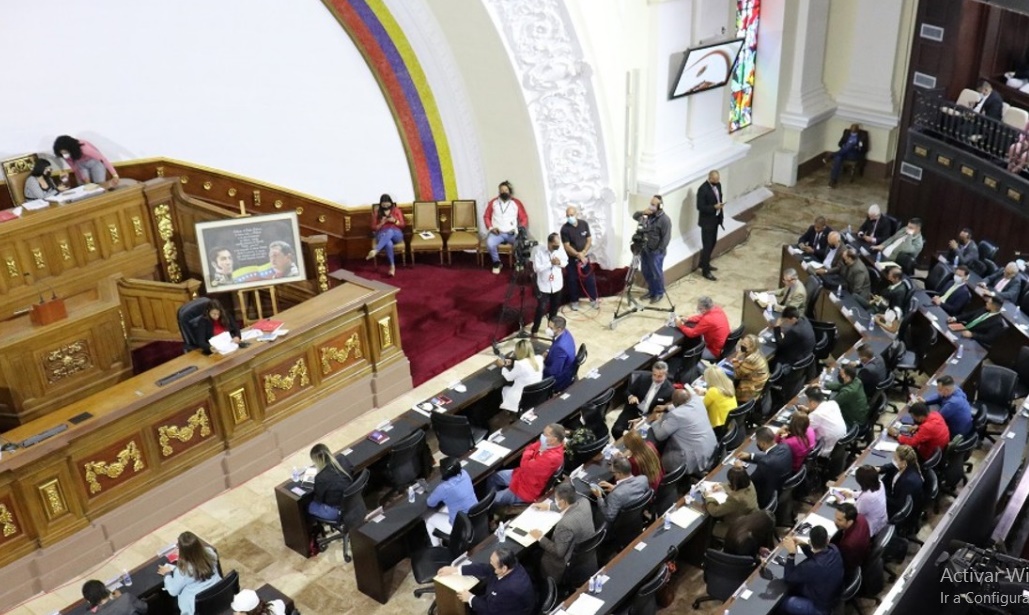The camera Deputies approved this Thursday, after a discussion process that lasted 18 hours, the bill on euthanasia, which obtained 57 votes in favor out of 96 possible. The initiative now passed to the Senate for parliamentary treatment. In this framework, Grupo R Multimedio spoke with the deputy for the Broad Front (FA) and member of the Chamber’s Health Commission, Cristina Lustemberg.
In September, said Commission approved by majority the bill that regulates euthanasia, through a unified text promoted by the Broad Front and the Colorado Party. Instance in which he was not accompanied by the representatives of the National Party and the Open Council, obtaining among the votes in favor, that of Lustemberg.
The deputy recalled that the work has been in process for more than two years, arising first from the initiative of the deputy for the Colorado Party, Ope Pasquet, linked to the decriminalization of the medical act linked to euthanasia and before this the FA bench, studied the project and presented another at the end of 2021 “linked to the right of patients to guarantee death in a dignified manner with principles of autonomy and individual freedom, which are enshrined in the Constitution.”
Regarding the single project, Lustemberg told us that with “a lot of advice we formed a joint work team that allowed us to come up with this single bill within the framework of the Health Commission”, which allowed us to collect a “serious, collective” and reviewing foreign and national legislation, “knowing that it is a highly sensitive issue, that is crossed by the personal conceptions that we may have, philosophical, religious, ethical and moral”, in view of this the deputy understands that as legislators “nothing of This must be above a right that a person may have when they are suffering from an illness that is already becoming incurable with suffering that is unbearable and that affects their quality of life.”
“The law is legislated to regulate and guarantee the right that people have to go through the process of dying with dignity,” he explained.
Lustemberg explained that it is a “guarantee” law, whose process involves a consultation with the treating physicians of a patient “who is going through an unbearable situation”, which is never opposed to palliative care. In this sense, he clarified that not every patient will access euthanasia, for this the Law presents the cases that can request it.
He also reported that the law contemplates the other view, which is the conscientious objection of doctors, who for personal reasons do not want to practice euthanasia, but if the providers of the integrated national health system must guarantee it to users, “it is almost similar to the law of voluntary interruption of pregnancy”, he exemplified.
The deputy in turn remarked that a commission made up of the Ministry of Public Health and the Prosecutor’s Office would be created where they would analyze the cases. In this instance, the law provides that if there is any doubt, the case can be sent for review by the Prosecutor’s Office. Lustemberg reported that said instance was a proposal of what today makes up the government coalition.
“Hopefully it passes with respect in the other Chamber and the country manages to advance in the conception of the rights of people,” the deputy wished.
Of the total votes obtained in the Chamber of Deputies, 41 votes belong to representatives of the Broad Front, 8 to the Colorado Party, 6 to the National Party, plus the vote of the deputies of the Independent Party and the People’s Party. For their part, representatives of Cabildo Abierto were the only party that voted unanimously against.
Lustemberg consulted regarding what is expected in the upcoming processes, she was confident that everything will end with her approval. “There are legislators who expressed their support for the project, because it embraces the maximum expression of freedom,” she replied, adding that “just as we have the right to spend life with dignity, the end must also be under those conditions.”
Regarding the decision that the President of the Republic, Luis Lacalle Pou, could take, he indicated that “our country is a secular state, governed by law and democratic, where religious, philosophical or other types of oppression should not intercede in the rights”, having said this, he added that the president from the constitutional point of view can veto the law, but that they hope that he will take into account that it is a law that has approval in almost all the seats of representatives and that there are polls that say that the majority of the population is in favor of the law.
Concluding, he recalled that “it is not a right that is imposed, if the person does not want to use it due to personal conceptions or fear, they do not do it, but who am I to section the right of a person who is going through an extended illness without therapeutic scope after to go through all the pain analgesia alternatives that manage palliative care».







